It looks like President Barack Obama is getting his Iran ducks lined up in advance of the meeting scheduled between the P5+1 and Iran in October. Duck 1: On Tuesday, Obama spoke with French President Nicolas Sarkozy by telephone for a half-hour, during which Iran was a central topic of conversation. PressTV later reported that on Tuesday, too, Sarkozy told lawmakers from his governing UMP, “It is a certainty to all of our secret services. Iran is working today on a nuclear [weapons] program.” I’m still trying to confirm that Sarkozy actually made those remarks, since although AFP picked up […]
Middle East & North Africa Archive
Free Newsletter
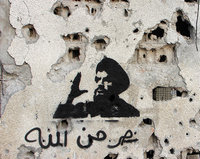
JERUSALEM — Last Friday, Sept. 11, Katyusha rockets fired from southern Lebanon landed near the town of Nahariya in northern Israel. Israel retaliated, firing shells into Lebanon and scrambling fighter jets. No one was hurt, but the incident highlighted just how easily and in how many ways fighting could restart across Israel’s dangerous northern border. The episode also brought to mind a mostly quiet rivalry that has lain dormant, but could stir without warning inside Lebanon: Hezbollah and al-Qaida despise one another, and in this part of the world, hatred usually leads to bloodshed. Israel declared that it held the […]

The European Union’s 2007 Ascension Partnership with Turkey (.pdf) calls for Turkey to reform its laws to adapt them to the Law of the European Union. Among the required reforms is legislation to protect and expand the media’s freedom of expression, which has been stifled in Turkey by broad interpretations of the Penal Code — specifically a clause known as Article 301 — as well as simmering domestic tensions between secular Kemalist and Islamist groups. Freedom of the press in Turkey is protected under Article 26 of the Turkish constitution. In fact, censorship of the press was abandoned on July […]
U.S. President Barack Obama announced a new phased, adaptive approach for missile defense in Europe, a revision of the Bush administration’s 2007 plan for missile defense. The administration says the new approach is based on an assessment of the Iranian missile threat, and a commitment to deploy technology that is “proven, cost-effective, and adaptable to an evolving security environment.”
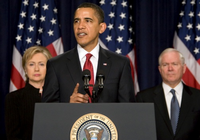
There is an important element missing in the extensive coverage of Afghanistan: multilateral diplomacy. The Obama administration has been correct to emphasize the stakes for Pakistan in Afghanistan and, by extension, the seriousness with which the U.S. takes Pakistan’s stability. But it has begun to sound like Afghanistan has only one border, and only one important neighbor. So far, the administration and the media’s portrait has oversimplified the nature of the Taliban insurgency, defining it as essentially an extension of the fragility of the Pakistani state and political system. In truth, Pakistan is probably more stable than it looks, however […]
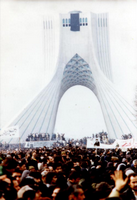
The government of Iran struggled for decades to fit into the broader Middle East, and it has finally succeeded: It now sees its people principally as a source of instability rather than a source of legitimacy. Thirty years after the Revolution, the Iranian government has concluded that it is far better to anesthetize the population than mobilize it. It is a conclusion from which there is no turning back. The Middle East has no shortage of formerly youthful revolutionary regimes that have slunk into middle age. In decades past, coups in Egypt, Iraq and Libya all tossed out corrupt Western-oriented […]
I’m going to go way out on a speculative limb on this one. But that UAE cargo plane carrying weapons to China that was detained while refueling in India suddenly seems like more than just a simple case of bad timing. The plane was detained while the Indian internal security minister was visiting Washington for talks on security (and counterterrorism) cooperation. It’s now emerging that there were some suspicions that the weapons on the plane included U.S.-manufactured Harpoon missiles sold to the UAE. And all this goes down at the same time a UAE crown prince is “making the rounds” […]
One circle I’ve yet to see squared is why Pakistan would share its nuclear technology — both uranium enrichment and weaponization — with Iran, when that technology is widely believed to have been financed, in part, by the Saudis? Indeed, rumors of an already done Pakistan-Saudi deal for the purchase of warheads in the event Iran achieves nuclear weapon status are so widespread that the Pakistani capacity is often referred to as the “Saudi bomb.” Pakistan’s claims that AQ Khan was a solo rogue operator were greeted with huge skepticism. And Khan — who, as a scapegoat with an axe […]
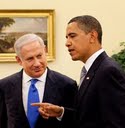
TEL AVIV, Israel — The announcement that Israeli Prime Minister Benjamin Netanyahu plans to approve the construction of more housing for Jewish settlers in the West Bank was interpreted by many Western observers as a snub, in light of Washington’s demands for a settlement freeze. In Israel, however, some see Netanyahu’s move not as a rebuff of American policies, but quite the opposite: a sign that Netanyahu is preparing to give in to pressure from the United States and work with U.S. President Barack Obama. Netanyahu’s decision to approve construction of 455 new settler homes sparked criticism from the Obama […]
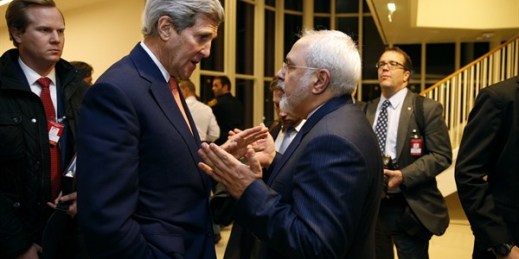
The problem with withholding diplomatic relations to punish countries and change their behavior is that it usually doesn't work. In the meantime, the absence of relations robs America of a key diplomatic skill and the ability to intervene in a crisis. In recent years, many American officials have regarded withholding diplomatic relations as a way to punish countries for actions ranging from human rights abuses, to failure to abide by international law, to specific treaty violations and acts of war. But state-to-state relations among nations provide an essential framework for the conduct of foreign relations. Having no relations, and the […]
Kenneth Payne flags something I’ve noted before as well: No significant works of art have yet emerged from the wars in Iraq and Afghanistan. If that seems like a trivial observation, consider the impact of “All Quiet on the Western Front” or WWII-era literature (Mailer, Heller, Vonnegut) on American society and culture, or Vietnam-era cinema (Deer Hunter, The Boys of Company C, Apocalypse Now, even Platoon) and TV (MASH). Part of this has to do with structural changes in the media. Publishing is now overwhelmingly dominated by memoirs and non-fiction, both of which we’ve seen with regard to these wars. […]
File this one under B, for Bad timing: Laura Rozen, from her new digs over at Politico (great pencil-drawing portrait!!), reports that the U.S.-UAE 123 nuclear agreement is due to escape congressional limbo in mid-October. The only potential wrench is concern over the UAE’s past history of lax export controls, in particular regarding potential diversion of controlled materials and technology to Iran. In other words, probably not the best time for a China-bound UAE cargo plane, stopping over for refueling in India, to not declare its cargo of arms and explosives. Apparently, the omisison resulted from a “technical error.” The […]
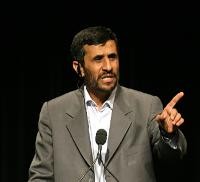
Note: The following opinion piece was submitted in response to last week’s WPR briefing, “Engaging Iran: An Interview with R. Nicholas Burns.” As both a news and analysis journal, WPR is committed to airing all sides of acontested issue, so long as they are respectfully expressed. Global diplomacy surrounding Iran’s nuclear standoff is very likely to reach a critical fork in the road this fall. In the coming weeks and months, this potentially dangerous crisis could either escalate or veer toward hopeful signs of a mutually satisfactory resolution. Ahead of the G-20 summit in St. Petersburg as well as the […]
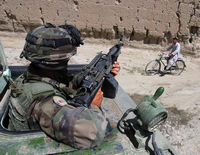
The U.S. is determined to implement a counterinsurgency strategy in Afghanistan, and one of the most important concepts of counterinsurgency is securing the people: Insurgents and counterinsurgents alike must appeal to the people they’re fighting amongst in order to deny the other popular support. But what does it mean to “secure the people” of Afghanistan? Some of the U.S. government’s best thinkers about defense policy and counterinsurgency, many of whom cut their teeth on the urban battlefields of Iraq, have finally begun to consider this question. But although Iraq is vastly different from Afghanistan, there seems to be no end […]

In what some experts are calling the third great wave of outsourcing — after manufacturing and services — cash-rich Arab and Asian governments are buying up arable farmland (read: water rights) all over the developing world. Naturally, the worst-case artists in my field of national security see only one possible outcome: a long, steady decline into a chaotic, Mad Max-like dystopia, characterized by that favorite of the alarmist set — resource wars. Get used to such predictions, as today’s still-stunning production inefficiencies are mechanically projected deep into the future, despite all indications of a biological revolution looming just over the […]
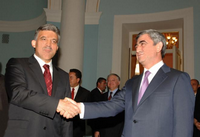
In a major diplomatic breakthrough, Turkey and Armenia declared their intent to restore relations and open their sealed border in a joint statement issued last week. Under Swiss auspices, the two countries outlined their collective plan to sign into action two protocols, one restoring diplomatic relations and the other to establish bilateral ties within six weeks. According to the joint statement, the protocols will enter into force only after they have been ratified by both countries’ parliaments. The joint declaration marks the culmination of rapprochement efforts that began with Turkish President Abdullah Gül’s “football diplomacy” visit to Yerevan in September […]
